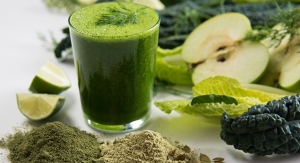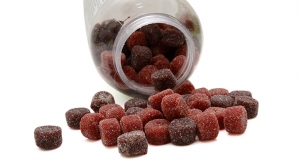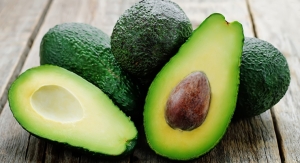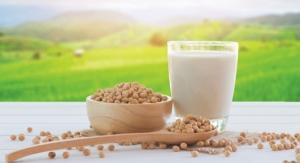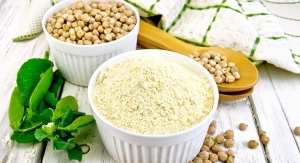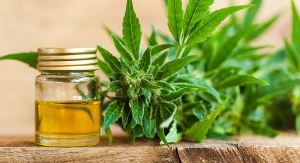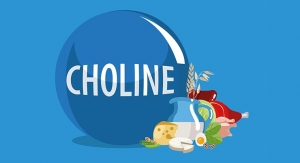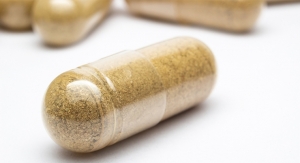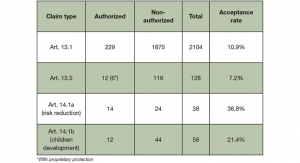02.22.19
The Solabia Group has completed its Halal certification program in early 2019 under the guidance and certification of the Halal Food and Feed Inspection Agency (HFFIA). The organization embarked on a continuous Kosher certification program in 2007 and is currently certified under the auspices of Orthodox Union (OU).
Religious certification of fermentation ingredients is an increasingly important trend in the industrial marketplace, along with non-animal, non-allergen and non-genetically modified material.
Peptones are enzymatic digests of plant (or animal) protein used as fermentation substrates for the growth of a wide variety of microorganisms. Generally used in conjunction with other substances such as sugars, growth promoters or vitamins, peptones constitute the nitrogen source that allows for biomass development of targeted cultures. Specific applications are found in the biotechnology, pharmaceutical, and in the agro-food industries for the production of starter cultures, probiotics or enzymes destined for the dairy and food production markets.
As the Kosher or Halal status of foods, strains or enzymes is normally a function of the ingredients used in their production, the Kosher and Halalimplications for food fermentation resides in the nature of the nutrients used to propagate the cultures, including peptones. Probiotics, starter cultures, or enzymes produced via microorganisms, for example, can only be considered Kosher and Halal if all the ingredients in the media used to harvest the cultures are themselves Kosher and Halal.
But beyond the respect of the rules of both religions, the true challenge, and the unique aspect of this double certification, is industrial: Solabia is now capable of supplying peptones bearing both Kosher Pareve and Halal certification and because of the nature of its certification with no sub-contracting of any kind, can do so in significant volumes and adjust quantities upwards as a function of customer demands on a moment’s notice.
In addition to the non-animal peptones certified under both programs, The Solabia Group also has three casein (milk derivative) peptones that are either Kosher Dairy or Kosher Dairy and Halal certified, including an enzymatic digest of Casein KH who’s performance mimic’s that of a standard Tryptone. This is particularly relevant for probiotic strains that are typically associated with dairy origins or used in dairy applications such as yogurt or fermented milk.
The added value for non-animal, non-allergen and non-GM peptones such as Broadbean, Potato or Pea peptones is considerably enhanced by this double certification as these unique and highly nutritious peptones are now totally adapted to the industry trends for probiotics and lactic acid bacteria. Broadbean potato and pea peptones offer alternatives for Halal and Kosher food markets that are estimated to reach 2.55 trillion US dollars for Halal and 60 billion US dollars Kosher in the next 5 to 6 years, according to prnewswire.com.
While traditionally Kosher or Halal certification has not had direct implications for the pharmaceutical or cosmetic industry, this too is in the process of evolving, in light of new law in Indonesia (Law n° 33 / 2014) that enters into application in 2019 requiring Halal certification for all “…goods and / or services related to food, beverage, medicine, cosmetics, chemical products, biological products, products of genetic engineering….” Products in the above areas manufactured via fermentation will be affected and need Halal certification to be approved for sale.
A key step in the implementation of Kosher and Halal certification was the transfer of Solabia’s animal tissue peptone manufacturing to its second site in BSE-free Brazil. Separation of animal / non-animal tissue has had a tremendous impact on the successful application of the Kosher and Halal programs at the SOLABIA Group as well as providing a strategic difference to the pharmaceutical industry in terms of traceability.
Religious certification of fermentation ingredients is an increasingly important trend in the industrial marketplace, along with non-animal, non-allergen and non-genetically modified material.
Peptones are enzymatic digests of plant (or animal) protein used as fermentation substrates for the growth of a wide variety of microorganisms. Generally used in conjunction with other substances such as sugars, growth promoters or vitamins, peptones constitute the nitrogen source that allows for biomass development of targeted cultures. Specific applications are found in the biotechnology, pharmaceutical, and in the agro-food industries for the production of starter cultures, probiotics or enzymes destined for the dairy and food production markets.
As the Kosher or Halal status of foods, strains or enzymes is normally a function of the ingredients used in their production, the Kosher and Halalimplications for food fermentation resides in the nature of the nutrients used to propagate the cultures, including peptones. Probiotics, starter cultures, or enzymes produced via microorganisms, for example, can only be considered Kosher and Halal if all the ingredients in the media used to harvest the cultures are themselves Kosher and Halal.
But beyond the respect of the rules of both religions, the true challenge, and the unique aspect of this double certification, is industrial: Solabia is now capable of supplying peptones bearing both Kosher Pareve and Halal certification and because of the nature of its certification with no sub-contracting of any kind, can do so in significant volumes and adjust quantities upwards as a function of customer demands on a moment’s notice.
In addition to the non-animal peptones certified under both programs, The Solabia Group also has three casein (milk derivative) peptones that are either Kosher Dairy or Kosher Dairy and Halal certified, including an enzymatic digest of Casein KH who’s performance mimic’s that of a standard Tryptone. This is particularly relevant for probiotic strains that are typically associated with dairy origins or used in dairy applications such as yogurt or fermented milk.
The added value for non-animal, non-allergen and non-GM peptones such as Broadbean, Potato or Pea peptones is considerably enhanced by this double certification as these unique and highly nutritious peptones are now totally adapted to the industry trends for probiotics and lactic acid bacteria. Broadbean potato and pea peptones offer alternatives for Halal and Kosher food markets that are estimated to reach 2.55 trillion US dollars for Halal and 60 billion US dollars Kosher in the next 5 to 6 years, according to prnewswire.com.
While traditionally Kosher or Halal certification has not had direct implications for the pharmaceutical or cosmetic industry, this too is in the process of evolving, in light of new law in Indonesia (Law n° 33 / 2014) that enters into application in 2019 requiring Halal certification for all “…goods and / or services related to food, beverage, medicine, cosmetics, chemical products, biological products, products of genetic engineering….” Products in the above areas manufactured via fermentation will be affected and need Halal certification to be approved for sale.
A key step in the implementation of Kosher and Halal certification was the transfer of Solabia’s animal tissue peptone manufacturing to its second site in BSE-free Brazil. Separation of animal / non-animal tissue has had a tremendous impact on the successful application of the Kosher and Halal programs at the SOLABIA Group as well as providing a strategic difference to the pharmaceutical industry in terms of traceability.

